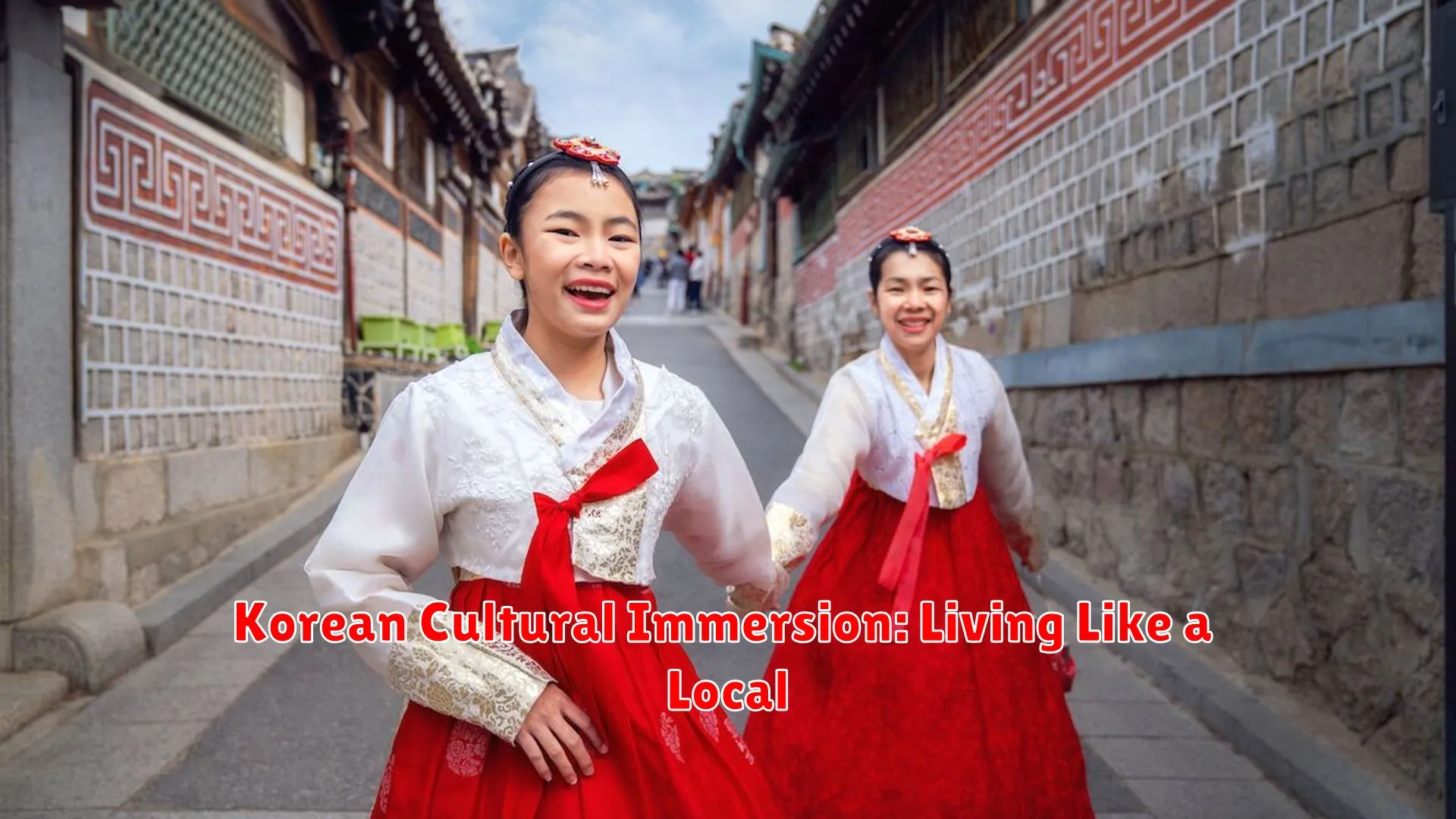Experience the vibrant heartbeat of South Korea with our guide to Korean Cultural Immersion: Living Like a Local. Discover the traditions, cuisine, and lifestyle that make this country a unique and unforgettable destination.
Staying in Traditional Hanok Houses
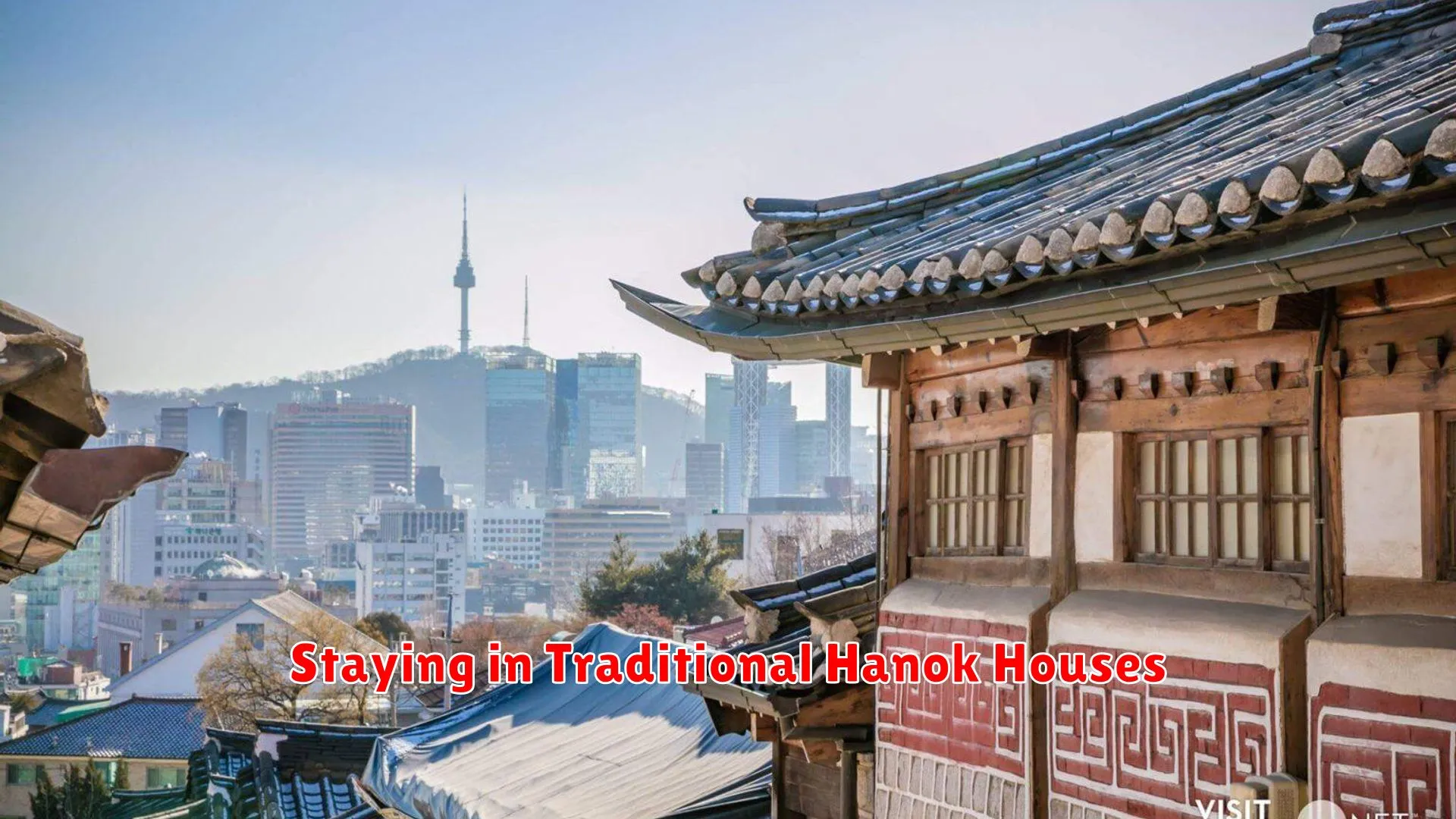
One of the most authentic ways to immerse yourself in Korean culture is by staying in traditional Hanok houses. These traditional Korean homes are not just accommodations but offer a glimpse into the country’s rich history and architectural heritage.
Hanok houses are known for their unique design, typically featuring wooden structures, curved rooftops, and heated floors called *ondol*. By staying in a Hanok house, you can experience the traditional way of living that has been preserved for centuries.
Lifestyle in a Hanok house is centered around harmony with nature and simplicity. The layout of Hanok houses is designed to align with the natural surroundings, often incorporating courtyards or gardens to create a serene atmosphere.
Guests staying in a Hanok house can enjoy various cultural activities such as tea ceremonies, wearing Hanbok (traditional Korean attire), and participating in traditional Korean crafts workshops. This immersive experience allows visitors to truly live like a local and deepen their understanding of Korean customs and traditions.
Participating in Cultural Workshops
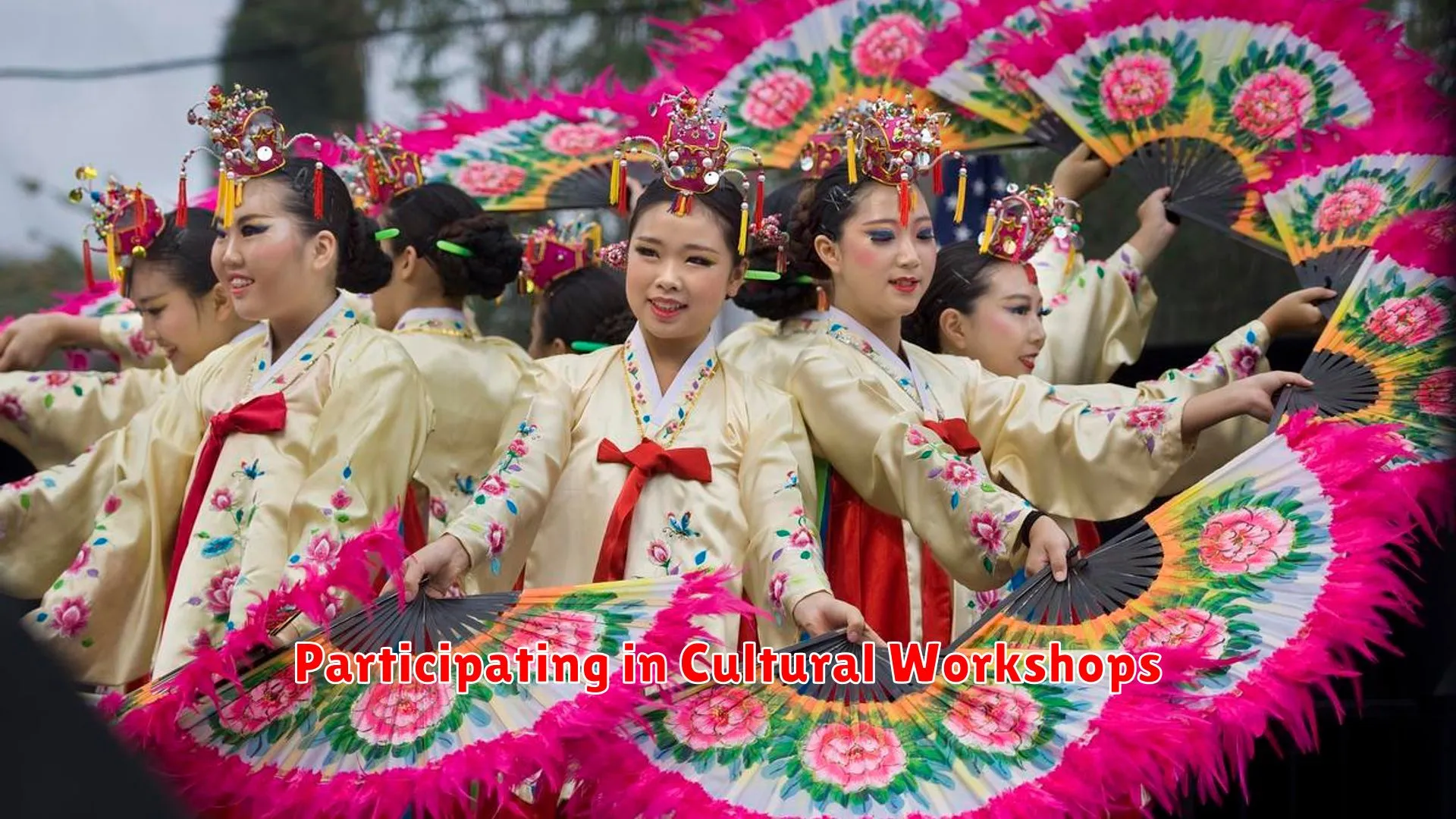
One of the best ways to fully immerse yourself in the Korean culture is by participating in cultural workshops. These workshops offer a hands-on experience that allows you to learn more about Korean traditions and practices in a fun and interactive way.
By joining a traditional Korean cooking class, you can not only learn how to prepare delicious Korean dishes but also gain insights into the significance of various ingredients and culinary techniques. This experience will give you a deeper appreciation for Korean cuisine and its cultural importance.
Another popular cultural workshop is learning how to make traditional Korean handicrafts, such as hanbok (traditional Korean clothing) or pottery. These workshops provide a glimpse into the craftsmanship and traditions that have been passed down through generations in Korea.
Participating in a Korean tea ceremony workshop is another enlightening experience where you can learn about the significance of tea in Korean culture and the intricate rituals involved in preparing and serving tea. This workshop offers a serene and meditative atmosphere that allows you to truly connect with Korean traditions.
Overall, participating in cultural workshops during your Korean cultural immersion journey will not only enhance your understanding of the local customs but also leave you with unforgettable memories and a deeper appreciation for the rich cultural heritage of Korea.
Exploring Local Markets
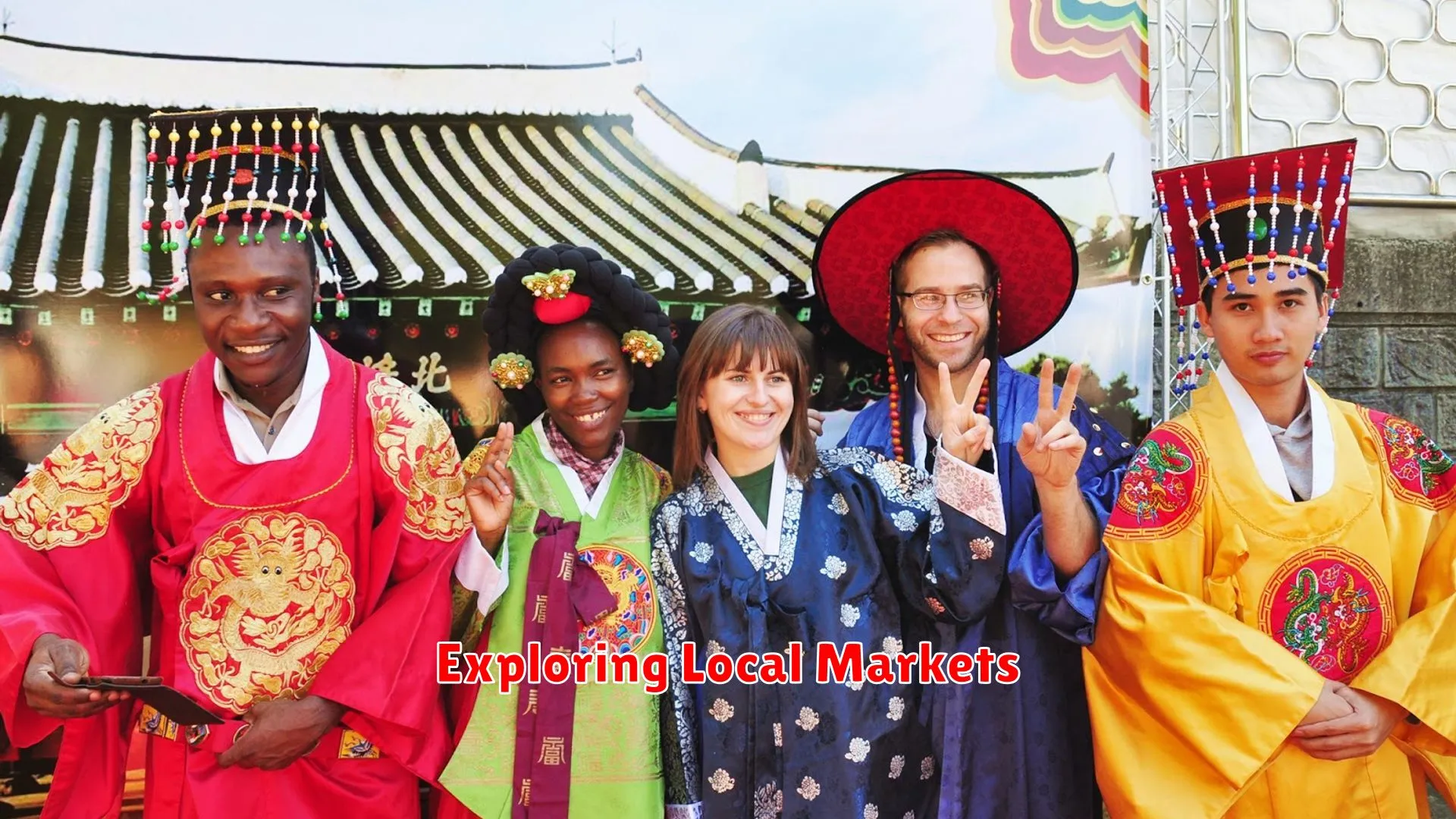
One of the best ways to truly immerse yourself in Korean culture and live like a local is by exploring the vibrant local markets scattered throughout the country. These markets offer a glimpse into the daily lives of Koreans and showcase the rich culinary and cultural traditions of the nation.
When you visit a local Korean market, be prepared to be surrounded by a feast for the senses. The bustling atmosphere, the colorful array of fresh produce and ingredients, the fragrant smells of Korean street food cooking, and the lively chatter of vendors and customers all contribute to an immersive cultural experience.
Take the time to wander through the narrow alleys of the market, browsing through stalls selling everything from traditional Korean snacks like hotteok (sweet pancakes) and tteokbokki (spicy rice cakes) to fresh seafood, kimchi, and handmade crafts. Don’t be afraid to interact with the vendors, as many are friendly and happy to share stories about their products and recommendations for local delicacies.
One of the highlights of visiting a local market in Korea is the opportunity to taste authentic Korean street food. From the iconic bibimbap and bulgogi to lesser-known treasures like bindaetteok (mung bean pancakes) and gimbap (Korean sushi rolls), there’s a wide variety of flavors to discover and savor. Be adventurous and try something new!
Exploring local markets in Korea is not just about shopping and eating; it’s also a cultural exchange that allows you to witness the essence of Korean daily life. You’ll see families shopping together, older men playing traditional board games, and young couples enjoying a simple meal at a food stall. By immersing yourself in these markets, you’ll gain a deeper appreciation for Korean culture and its people.
Joining Community Festivals
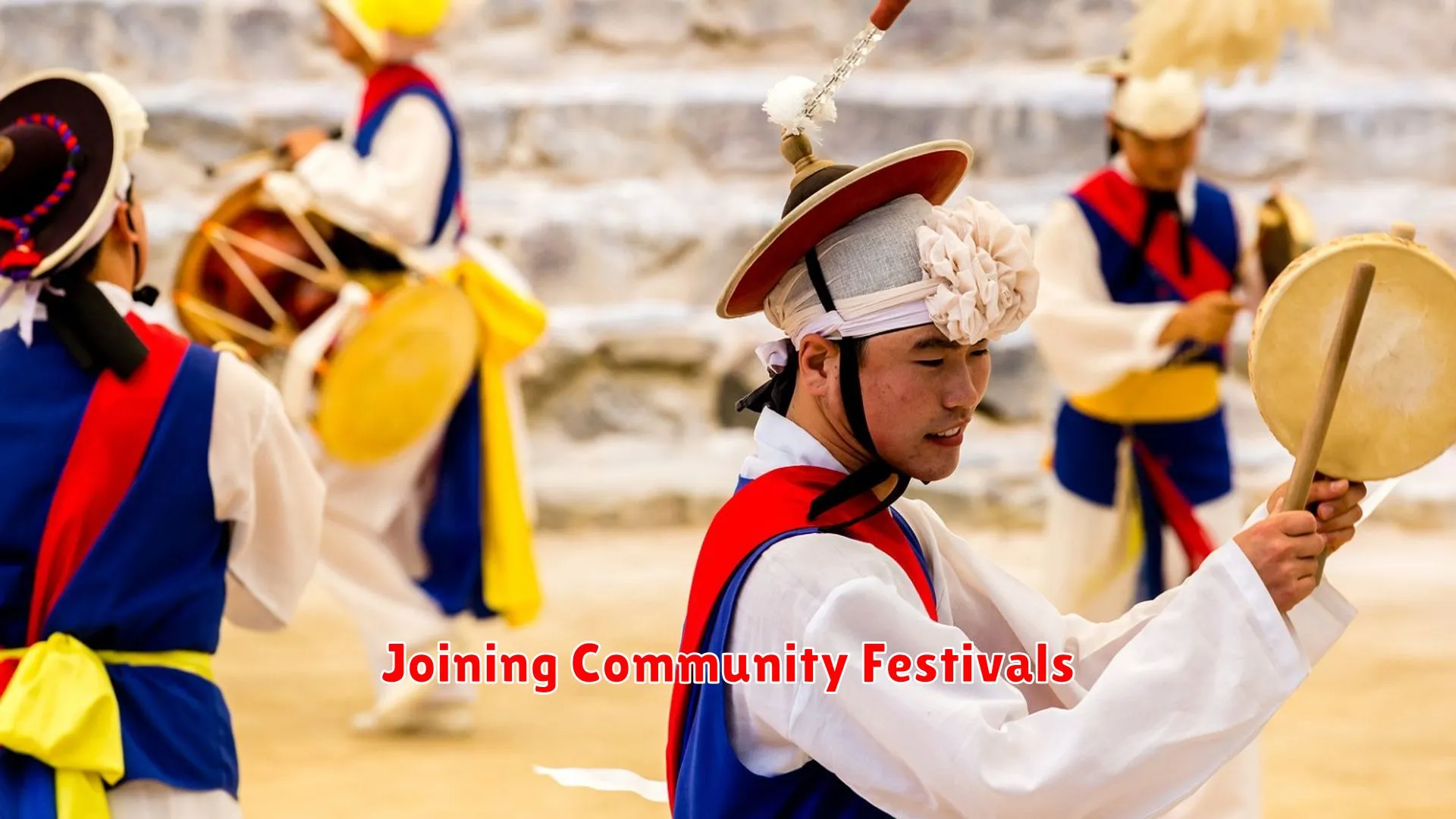
One of the most exciting ways to immerse yourself in Korean culture and truly live like a local is by participating in community festivals. These vibrant and colorful events offer an authentic glimpse into the traditions, customs, and lifestyle of the Korean people.
Joining a community festival allows you to witness traditional performances such as mesmerizing Korean drum dances, dynamic taekwondo demonstrations, and beautiful hanbok fashion shows. You can also indulge in a wide array of delicious Korean street food, from spicy tteokbokki to sweet hotteok, giving your taste buds a flavorful tour of Korean cuisine.
Moreover, these festivals are a fantastic opportunity to engage with locals and forge meaningful connections. Whether you are trying your hand at traditional crafts, learning Korean folk dances, or simply enjoying the festive atmosphere, participating in community festivals will undoubtedly enrich your Korean cultural experience.
So, mark your calendar and make sure to join a community festival during your visit to South Korea. It’s an unforgettable way to immerse yourself in the heart and soul of Korean culture.
Conclusion
Embracing the Korean way of life through cultural immersion offers a profound experience, allowing one to truly appreciate the rich traditions, customs, and warmth of the local community. It’s a transformative journey that fosters understanding and connection.
